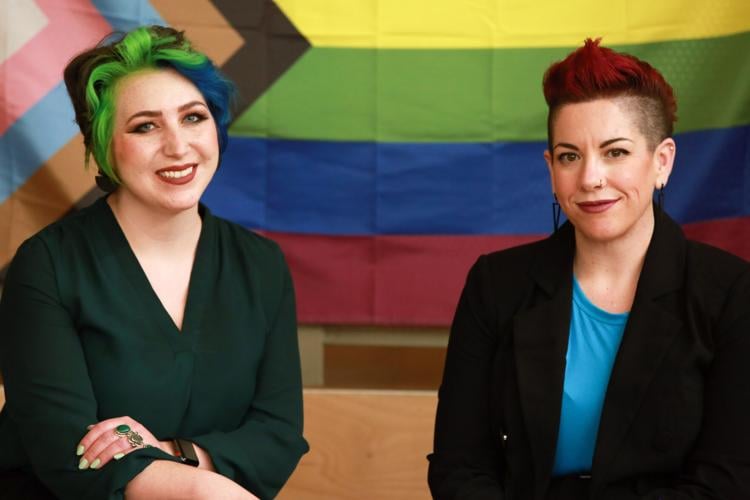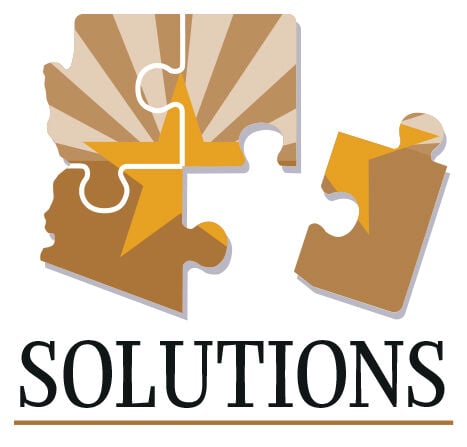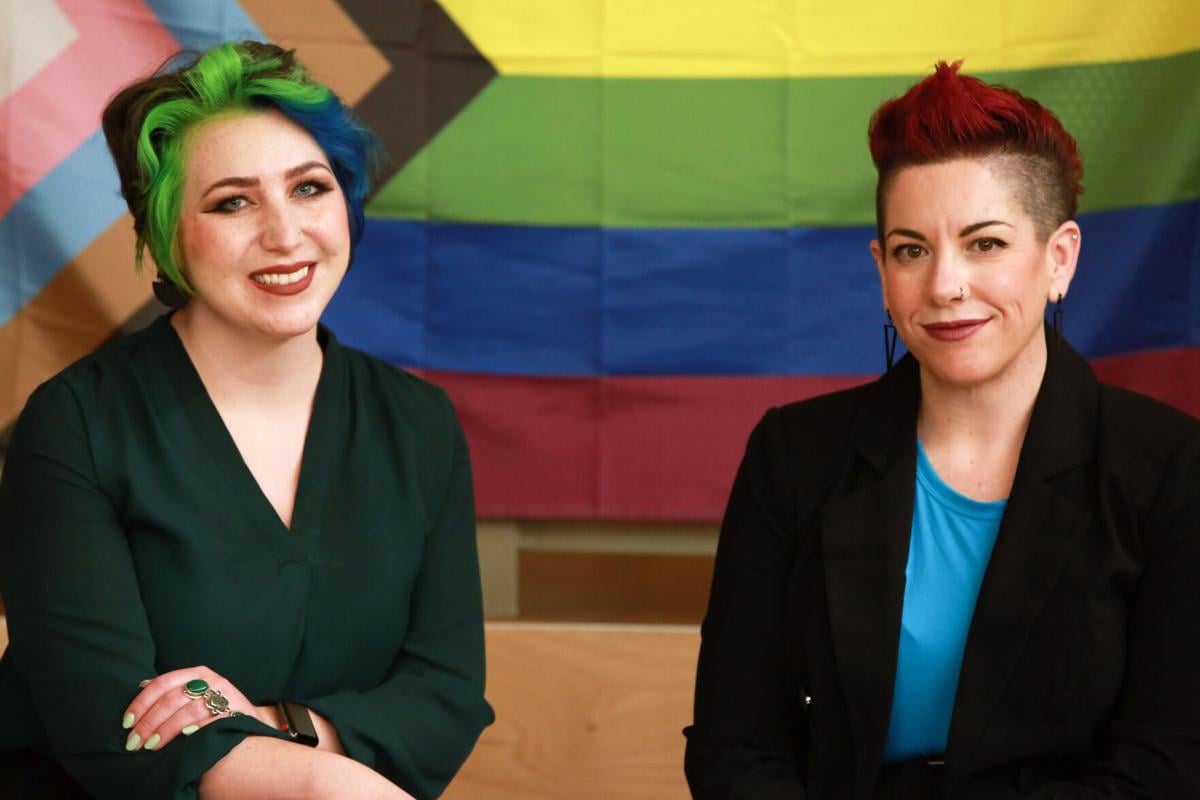The Pima County Attorney's Office is stepping up its efforts to support LGBTQ+ survivors of sexual assault, with a newly designated, queer-identifying victim advocate and a partnership with a local anti-violence program.
Together with the Southern Arizona AIDS Foundation's Anti-Violence Project, the county attorney's office is hoping to get the word out to the LGBTQ+ community that there's a safe space in the local criminal justice system for survivors to talk about what they have experienced and to seek support services.
In 2019, Pima County was awarded a $2 million grant to inventory and test cold case sexual assault kits, as part of the Bureau of Justice Affairs' national Sexual Assault Kit Initiative, also called SAKI.
A portion of the funds was earmarked to address the disparity in response to people in underserved communities, including Spanish speakers, as well as people who identify as LGBTQ+.
'Mistrust in the system'
While work has been going on for years to help engage Spanish-speaking survivors, it's been a little more difficult to get the LGBTQ+ engagement off the ground, said lead victim advocate Colleen Phelan.
"Two years into the grant, we were struggling to find anyone to participate in the process, which is fair," Phelan said.
Many LGBTQ+ individuals have historically faced a range of negative experiences with law enforcement, ranging from lack of understanding, to discrimination, hostility or violence, according to an International Association of Police Chiefs strategy and consideration guide for responding to sexual violence in LGBTQ+ communities.
These interactions have influenced levels of trust within LGBTQ+ communities, which exacerbates the issue of underreporting of sexual assault, the guide said. On top of that, data shows underserved communities are among the most at risk, it noted.
In 2013, the U.S. Centers for Disease Control and Prevention released its first study on the prevalence, by sexual orientation, of domestic violence, sexual violence and stalking.
The study, which is also the most recent, found that lesbians, gay men and bisexual men reported experiencing sexual violence at higher rates that heterosexual people, and bisexual women reported a higher rate of sexual assault than both lesbian and heterosexual women.
Transgender people experience much higher rates of sexual assault than most other populations, with nearly half — 47% — of respondents in a 2015 U.S. transgender survey reporting having been sexually assaulted at some point in their lives.
In addition to that increased risk, members of the LGBTQ+ community face a number of other challenges to reporting sexual assault, including not seeing the law enforcement agency as being reflective of their community.
Members of the LGBTQ+ community have difficulty accessing services following a sexual assault for a variety of reasons, including unpleasant experiences in the past, a system that is largely designed for heterosexual people, and the fear for some of outing themselves, she said.
"Transgender or gender-nonconforming are at higher risk than any other portion of the population and less likely to seek support from traditional sources because they have been failed in the past," Phelan said.
It helps to demonstrate that even if a government agency has not done it right in the past or all of the time, they are trying.
Helping people feel safe
That's where Blue Norush comes into play.
Norush recently joined the county attorney's Sexual Assault Kit Initiative team as its queer-identifying advocate, working to bridge the gap between survivors and the system.
Norush, who uses the pronoun they, started working as a volunteer victim advocate at the prosecuting office in 2014, then joined the staff for a few years. They took a break to go back to school, while still working as a victim advocate with Mothers Against Drunk Driving, and recently returned to the county attorney's office.
"Outreach to the LGBTQ community from a government agency is particularly difficult, given the warranted mistrust for the system," Norush said. "It's difficult to encourage people to seek help and feel heard when they don't feel like they're safe."
Helping people feel safe means having queer-identifying people like Norush within the system to form those connections and pass along resources, they said.
"We're starting with me as the queer person at the Pima County Attorney's Office for queer-identifying folks to come to with questions about the system, questions about ongoing cases and more," Norush said.
Free resources available
Around the same time Norush moved into their position in the Sexual Assault Kit Initiative team, Carrie Eutizi became program director at the Southern Arizona AIDS Foundation's Anti-Violence project. It works to prevent, respond to, and end violence against and within the LGBTQ+ communities of Southern Arizona.
The project advocates for survivors of all types of domestic and intimate partner violence, sexual assault, hate violence, and stalking, providing survivors with resources, safety and support. It also offers referrals and resources to friends, family members and other callers who may not qualify for services from the project but still need assistance or direction.
Eutizi began reaching out to agencies to provide information and training and to build connections.
When Eutizi suggested holding training for staffers at the county attorney's office, a partnership formed, said victims services director Virginia Rodriguez.
"She really can let us know what she'd like to see and the needs of the population," Rodriguez said.

Norush and Eutizi started brainstorming on work to do together. From there, it's been a matter of letting people know who they are and what they do.
The Southern Arizona AIDS Foundation "created an LGBTQ+ outreach department to be one of the subject matter experts in Tucson on these issues and to provide resources for free," Eutizi said.
Since it's a tight-knit community, word of mouth can travel fast, especially when that word is that there's a safe person or group to talk to and a place to access services.
Community interest
Norush has updated the county attorney's office's literature to make it more inclusive toward LGBTQ+ people and to add the Southern Arizona AIDS Foundation's resources.
"We want to get more education into the system, as well," they said. "Not only with law enforcement, but also with hospitals and their staff."
They recently taught an "LGBTQ 101" course with the Southern Arizona Center Against Sexual Assault's newly graduated survivor advocate team, hoping to equip the call takers with tools they need to be more inclusive when dealing with survivors.
Many local behavioral health providers, shelters and other community partners are expressing interest in ensuring they're being inclusive, Eutizi said.
Pima County Attorney Laura Conover said that after a year of inviting local organizations to provide input on changes they'd like to see in the criminal justice system, she's pleased that groups are starting to feel comfortable to reach in, knowing they'll find a receptive audience.
Here to get 'stuff done'
With the Sexual Assault Kit Initiative grant expiring on Oct. 1, the county attorney's office's Phelan and Norush are working quickly to create resources.
"There's a lot of frustrations with the movement toward the LGBTQ community outreach just on an institutional level that a lot of it is performative and not a lot of action," Norush said. "We're here to start getting stuff done."
For April's Sexual Assault Awareness Month, the office will distribute education pieces about specific at-risk populations, some of which includes simple messaging about pronouns.
"We're pushing some of the more formal institutions and explaining that it will be slow, but we're trying," Phelan said.
On a Thursday in early February, evidence of planning for April's awareness month was on display at the Southern Arizona AIDS Foundation's Thornhill Lopez Center on 4th, a place for LGBTQ+ and allied youths ages 13-24 to visit and access a variety of services.
Earlier in the week, a group of University of Arizona students held a planning session to brainstorm slogans and campaign ideas to use during campus and citywide events throughout April. Advocates and others will be working to break myths about sexual violence through facts and community education.
"We're inviting people in who do have voices that want to be heard," Phelan said.
"Tucson has a pretty strong LGBTQ community, and people within that community tend to look out for each other, because they're not offered the same safety nets that cisgender and heterosexual people have been throughout time," Norush said.
"We can't change the system as a whole, but we can try to make it more comfortable, inviting and a little easier at any chance we get."






